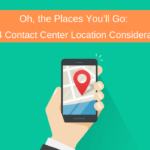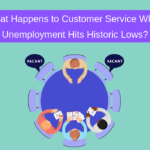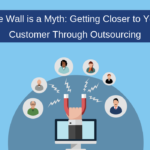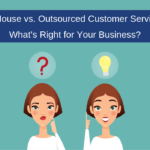Top 10 Things to Assess on Your Contact Center Vendor Site Visit
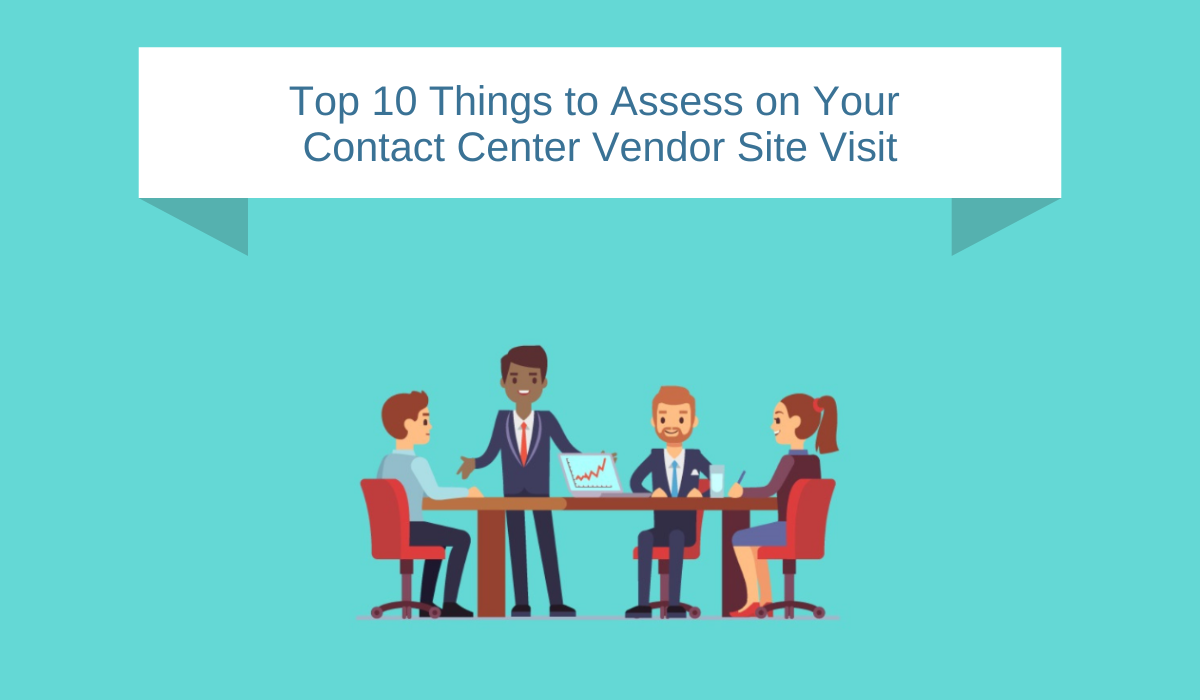
Listen to the audio or read the article
Choosing a strategic partner to deliver an outsourced customer care solution is a significant business decision – maybe one of the most significant decisions you’ll make in your career. You’ll task your team with running a tight procurement process to assess potential contact center partners. Undoubtedly, that will involve a number of stakeholders on your side, including the sourcing professionals who make their living running RFPs.
The right contact center RFP questions can tell you a lot, but discerning which partner is exactly aligned with your long-term goals, your company culture, your customer base, and your team – well, that requires a site visit. In fact, we’d say it’s the most critical step in your decision-making process. That’s why we’ve put together a list of the top 10 things to assess on your contact center vendor site visit.
(p.s. If you’re wondering whether a site visit is still relevant in today’s virtual world, we’re here to shout a resounding “yes” – take a look at our debate between on-site vs virtual in this article.)
1. Work Environment
Don’t underestimate the power that the physical work environment can have on measurable outcomes like engagement, retention, productivity, and even quality. While some call centers have given the industry a bad rap, the right partner knows the value of natural light, ergonomics, thoughtful interior design, and inviting leisure spaces.
2. Technology
The pace of change in the contact center industry is mind-blowing. Not too long ago, modern CRM integrations and call routing features felt like the pinnacle of customer experience technology. Today, 80% of industry leaders agree on the importance of AI, bots, and automation – even for agent-assisted tasks.
The site visit will give you a first-hand look at how your potential vendors are leveraging contact center technologies for themselves and for their clients. Plus, you’ll have a chance to sit down and talk with folks like the CTO face to face to see whether your vision and risk tolerances are aligned.
3. Security
The RFP may detail all the safeguards the center has in place to protect sensitive information. However, a vendor site visit lets you see how policies and procedures, from key card security to cell phone restrictions, are upheld IRL. When it comes to your data, you need to dig into the details.
As you chat with team members and walk around the facility take note of the following (or the lack thereof):
- Video surveillance
- Security personnel
- Protocols for visitors
- Alarm systems at access points
- Employee knowledge of and adherence to security procedures
4. Management and Leadership Interactions
The relationship between a manager and their employees can make or break the call center organization. According to a study from Gartner, employees with effective managers are:
- 4x more likely to be top performers
- 2x more likely to remain with the company
- 5% healthier, physically and mentally
In other words, an outsourcer can spend months perfecting SOPs and recruiting stellar agents for your program, but if the frontline managers don’t measure up, employee engagement – and all the measurable benefits strong engagement provides – will be lacking. Positive, encouraging, and likeable leadership is critical.
Pay attention to the details when you’re walking around on your visit. Ask yourself:
- Are agents “coached” for performance or are they just “corrected” for making mistakes?
- Is it obvious that the relationships between agents and program managers are built on the premise of mutual respect and continuous growth?
- Is there a “them versus us” attitude between folks on the frontline of production and the management teams?
Extend these observations to the company’s leadership team. Is there a palpable sense of trust and mutual respect? Do the people you are interacting with seem to genuinely like each other? How a company acts and reacts, especially when the going gets tough, depends so much on the trust and respect that is either present or absent within the management team.
5. Culture
Do you ever look at those Silicon Valley offices and wonder who really craves a slide in the lobby or considers kombucha on tap a make-or-break perk? Instagram worthy? Sure. But it doesn’t define an organization’s culture in the areas where it truly matters.
Recent research shows employees are attracted to a culture that makes them feel valued and their work feel meaningful. A “good fit” between the job description and each worker’s skills and interests alone is no longer enough.
It’s essential to have faith that the contact center you choose will foster a culture your agents will feel good about – and one that aligns with the culture of your own brand. Reflect on these questions after your vendor site visit:
- Do agents understand the impact of the work they’re doing?
- Is there a sense of empowerment on the frontline?
- Do employees have the tools and resources to do their job well?
- Is this a place you could see yourself working?
6. Productivity
We love taking our prospective clients into the heart of our Workforce Management Operations. This is where they get to see our real-time analysts engaged in the high-wire act of skilling and resource assignment firsthand.
During your site visit, you can assess for yourself how the center handles the delicate balance of driving productivity and efficiency to meet your grade of service goals while also considering the human impact of those business decisions on the frontline agents.
7. Quality Interactions
The agenda for your vendor site visit should include at least an hour for Y-cording or doing “seat rides” with agents. It can be easy to overlook this when you’re trying to fit travel to multiple vendors into a tight timeframe, but nothing is going to give you a clearer view into the “moment of truth” – that moment when the outsourcer’s agent connects with a client’s customer.
As you’re listening into the customer interaction, ponder these questions:
- If you were the individual on the other end of the line, how would you have responded to a CSAT survey after the interaction?
- Did the agent demonstrate empowered decision-making?
- Did they create a positive experience even if they couldn’t resolve the issue at hand?
- Were they engaged in the customer’s experience?
- Would you have been satisfied with the quality of that experience if it was your customer?
8. Brand Representation
When you partner with a contact center, their agents become your agents. And that means they should fit their dialogue to your brand voice – not reuse the same tired, old script. Think about these questions:
- As you tour the center, is it easy to discern a difference from one client program to another?
- Is there a shift in the vibe, the agent profile, and the energy from program to program that matches each client’s own brand and the nature of the work being done?
- Is there a singularity to the production area where the outsourcer’s own brand/employment experience seems to be the prevalent element?
It’s a tricky thing to balance the duality of being a good employer and creating engagement as an outsourcer while nurturing a strong, identifiable connection between your agents and your clients’ various brands. Done well, it’s clear that the unique connection between agent and client brand is strong. As one of our agents once said, “I see myself as an employee of my client first and foremost. I feel like I work for them directly. Because that’s how Blue Ocean trained me.”
9. Client Relations
While undoubtedly all contact centers will put their best foot forward during site visits, pay attention to the nuances to really discern if client relations and good governance are top strategic priority.
- Have they paid attention to the details?
- Is the team being proactive and thoughtful in an effort to make things easy for you?
- Is the final agenda a collaborative effort focused on your goals, or is it a canned sales program designed around the outsourcer’s goals?
- Is your visit well organized?
- Is the senior leadership present and fully engaged in your visit?
- Is it clear that you would be a valued client for the operations team, or is the sales team just trying to hit their quota?
- Is there transparency?
- Is the sales team comfortable leaving you alone to do sessions with agents or are they hovering anxiously?
When you spend time on site, one thing that should be clear is whether you are keen to work with the people you are visiting … or not. The way the company conducts themselves at this crucial part of the sales cycle will give you great insight into how you can expect to be treated as a client.
10. Employee Satisfaction
If there’s one common denominator behind positive customer interactions at a contact center, it’s the satisfaction of the agents. In fact, a study by Gallup showed that the seemingly simple yet abstract idea of engagement can increase customer loyalty by 10% and sales productivity by 18%.
Employee satisfaction should be one of the most critical factors in your decision. At the end of your visit, take a final look around the facility. What do you see? If ultimately you see a room of positive, productive, and engaged employees who are supported by their immediate managers and by the senior leaders as well, you can likely chalk the visit up as a success.
The site visit is one of the most important first steps in making an informed outsourcing decision. Ready for a trip? Take the first step and book an appointment to chat today.

